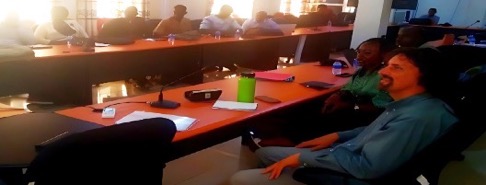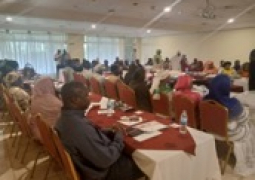
The project aims to clarify the influence of the three main causes of fresh water salinisation affecting the River Gambia, climate change, increased water consumption and a hydro-power dam that is starting to be built up stream.
Salibia also seeks to understand and monitor the effects of freshwater salinisation on biodiversity.
It further aimed to understand how salinisation might be impacting the carbon cycle of River Gambia, and the impact of salinisation on local communities including the path ways to quantify the severity of those impacts, access and develop adaptation strategies, adaptive capacities, preferences and limitations of the local communities.
Miguel Canedo-Arguelles, project coordinator, said the project is all about how the effect of sea water intrusion into the River Gambia is affecting the biodiversity, the ecosystem and communities.
He highlighted that salinity is caused by drought and after the research they are expecting to generate new knowledge and know how salt water intrusion is going up the river annually and how it is affecting the lives of the people and communities.
While calling on collaboration from Gambians, Miguel revealed that they would build the capacity of UTG members and will initiate an exchange visit to Spain for knowledge to be generated for UTG students and be utilised by Gambians even after the project.
Mamudou Jallow, head of Biology Department, UTG, said the project is a grant from the Spanish government to conduct research on salt intrusion which has become a problem in The Gambia. However, he added, due to lack of funding, the University of The Gambia could not conduct.
Jallow added that the project came with capacity building, describing it as very important for the University of The Gambia in the area of equipping the Biology Department with a laboratory – something that was a challenge for the Institution.
“If UTG has this capacity building, even after the project we will be able to do monitoring and projection for decades and know the impact of salt water intrusion,” he said.
On similar points, Pablo R. Lozano and Nuria Catalan Garua, Spanish researchers, stated the challenges they encounter such as language and cultural barriers as well as their key implementation plans in accessing salinity trends – which are to identify relevant study sites where they could access different components that are important and also sites where they could install census in the long time for the communities.




